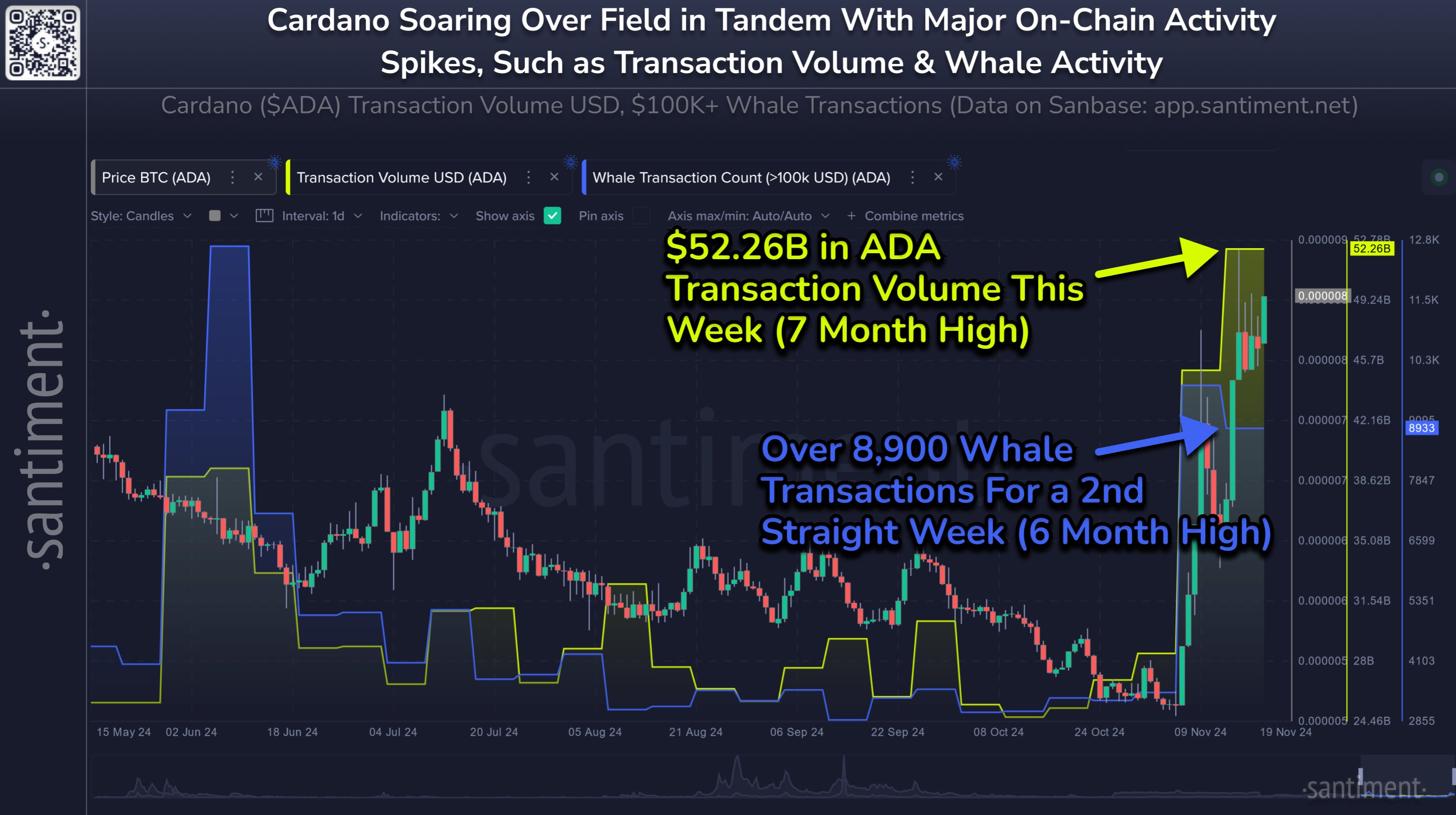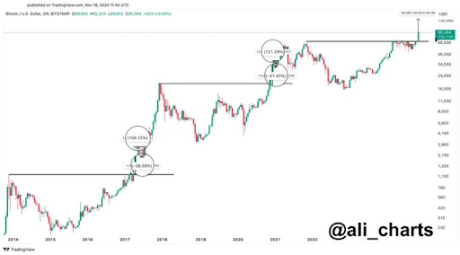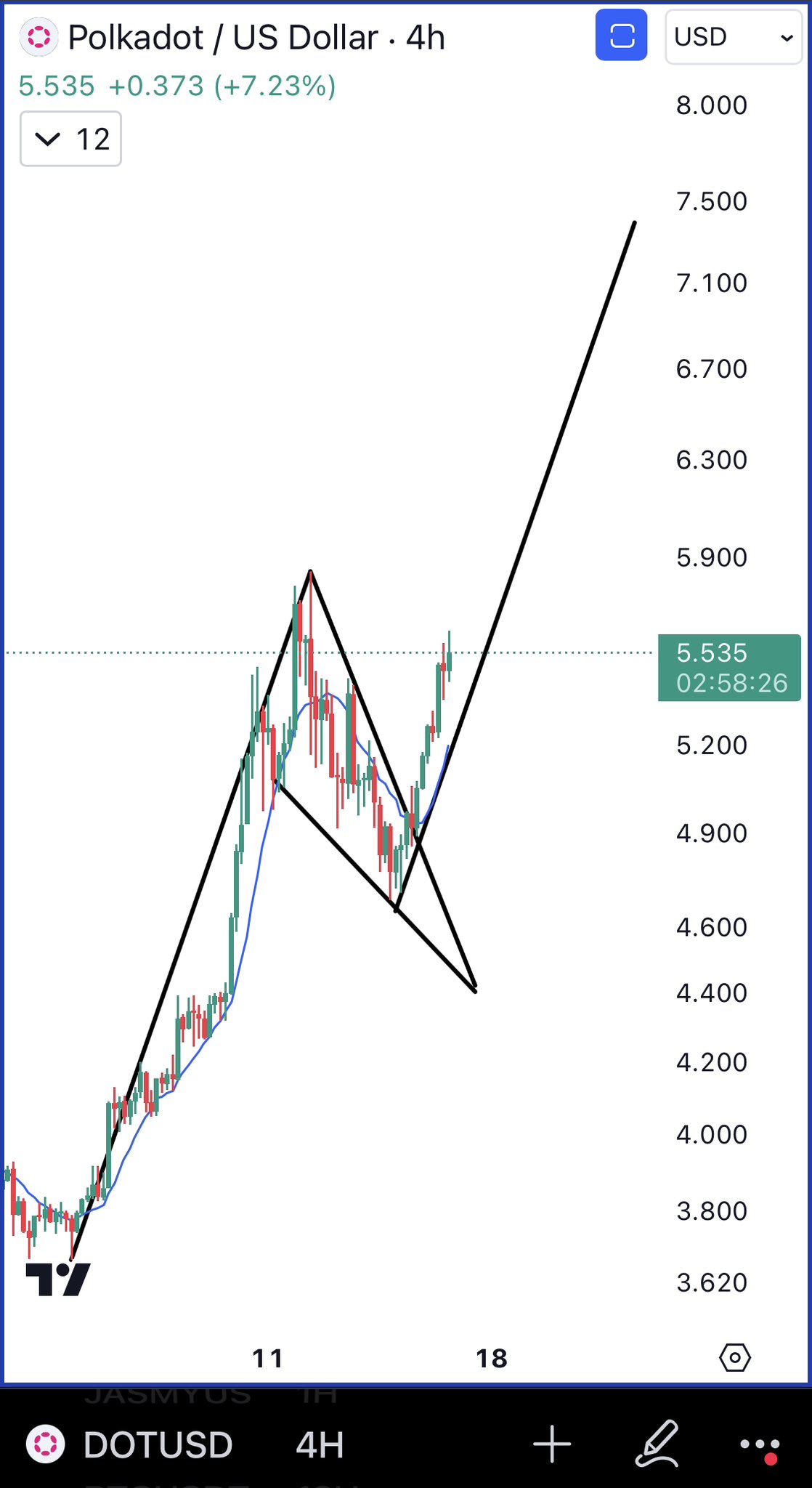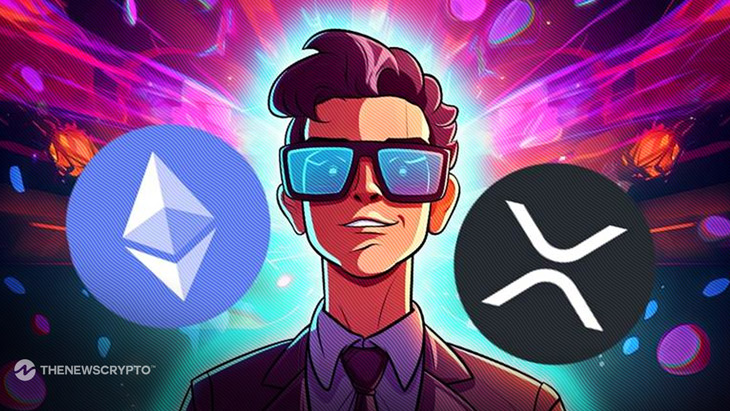Shiba Inu (SHIB) is the second largest meme coin and has a special feature compared to Dogecoin: token burns. Hardly any other topic is discussed more frequently in the SHIB community (besides Shibarium) and causes confusion in the process. Everywhere you can read: “Billions of SHIB burned, this is what happens to the price”.
But hardly anyone emphasizes that SHIB Burns basically have no significant impact on the price, at least not with the current volumes. Also, because the total circulating supply of SHIB of 589,346,914,631,298.1 SHIB is gigantic, large numbers can quickly create a mirage.
The SHIB burn tracker, the most popular service for monitoring SHIB burns, has stepped forward to address the misconceptions and shed light on the factors driving SHIB’s price movements.
The expert emphasizes the essential role of demand and uniform investments in shaping SHIB’s price, rather than relying solely on token burns. Burning a substantial number of tokens, while seemingly impactful, cannot significantly influence the price without continuous and substantial token purchases to match the current buying rate. As the analyst puts it, “Burning 10 billion tokens in a week will not impact the price when there are far larger transfers being purchased daily and prices have just sustained.”
The crux of SHIB’s price dynamics lies in the fundamental economic principles of supply and demand. Token burning can contribute to scarcity and reduced supply, but it is demand that imparts value to the token. As the burn tracker aptly notes, “A token can burn 90% of their supply, but if there’s no demand for that token, then it holds no value.” In other words, burning alone cannot enhance SHIB’s value; rather, it is the surge in demand coupled with decreased supply that can positively influence its price.
The role of major holders, mainly centralized exchanges, also holds significance in the SHIB ecosystem. The tracker points out that “the top 100 accounts (excluding the burn address) for $SHIB hold near 400T of the token’s supply.” These major holders impact liquidity and accessibility for traders, influencing the token’s overall market behavior.
While acknowledging the potential impact of token burning, the tracker urges caution against overemphasizing it as the sole driver of SHIB’s price success. Success should be evaluated holistically, and arbitrary price targets should not dictate a token’s journey. As the SHIB tracker suggests, “A token’s success doesn’t always mean reaching a specific price, like ‘$0.01.’ Many have their own price goals.” Instead, long-term growth and adoption, as well as continuous community interest and participation, should be considered as vital indicators of success.
Furthermore, it is crucial to recognize that SHIB is still in its early stages, while with Shibarium launch there is a huge driver coming for higher SHIB burns. As the burn tracker points out, “Crypto is still growing, and we’ve seen significant progress in terms of the number of crypto holders worldwide.”
At press time, the SHIB price stood at $0.00000779, continuing the upward trend of the last few weeks (black line), even though the price has recorded a small loss of 0.8% in the last 24 hours.
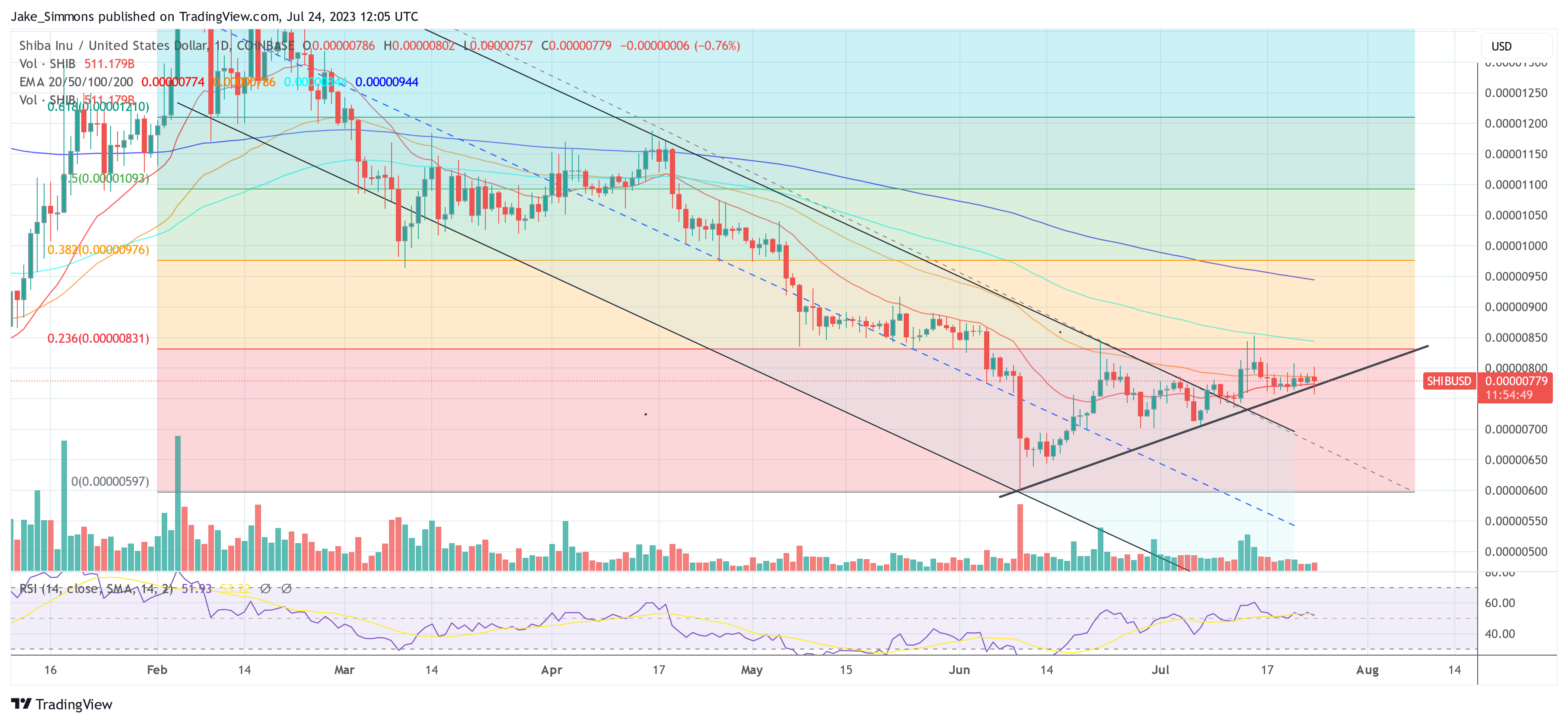
But hardly anyone emphasizes that SHIB Burns basically have no significant impact on the price, at least not with the current volumes. Also, because the total circulating supply of SHIB of 589,346,914,631,298.1 SHIB is gigantic, large numbers can quickly create a mirage.
The SHIB burn tracker, the most popular service for monitoring SHIB burns, has stepped forward to address the misconceptions and shed light on the factors driving SHIB’s price movements.
SHIB Burns X Shiba Inu Price
The expert emphasizes the essential role of demand and uniform investments in shaping SHIB’s price, rather than relying solely on token burns. Burning a substantial number of tokens, while seemingly impactful, cannot significantly influence the price without continuous and substantial token purchases to match the current buying rate. As the analyst puts it, “Burning 10 billion tokens in a week will not impact the price when there are far larger transfers being purchased daily and prices have just sustained.”
The crux of SHIB’s price dynamics lies in the fundamental economic principles of supply and demand. Token burning can contribute to scarcity and reduced supply, but it is demand that imparts value to the token. As the burn tracker aptly notes, “A token can burn 90% of their supply, but if there’s no demand for that token, then it holds no value.” In other words, burning alone cannot enhance SHIB’s value; rather, it is the surge in demand coupled with decreased supply that can positively influence its price.
The role of major holders, mainly centralized exchanges, also holds significance in the SHIB ecosystem. The tracker points out that “the top 100 accounts (excluding the burn address) for $SHIB hold near 400T of the token’s supply.” These major holders impact liquidity and accessibility for traders, influencing the token’s overall market behavior.
While acknowledging the potential impact of token burning, the tracker urges caution against overemphasizing it as the sole driver of SHIB’s price success. Success should be evaluated holistically, and arbitrary price targets should not dictate a token’s journey. As the SHIB tracker suggests, “A token’s success doesn’t always mean reaching a specific price, like ‘$0.01.’ Many have their own price goals.” Instead, long-term growth and adoption, as well as continuous community interest and participation, should be considered as vital indicators of success.
Furthermore, it is crucial to recognize that SHIB is still in its early stages, while with Shibarium launch there is a huge driver coming for higher SHIB burns. As the burn tracker points out, “Crypto is still growing, and we’ve seen significant progress in terms of the number of crypto holders worldwide.”
At press time, the SHIB price stood at $0.00000779, continuing the upward trend of the last few weeks (black line), even though the price has recorded a small loss of 0.8% in the last 24 hours.

